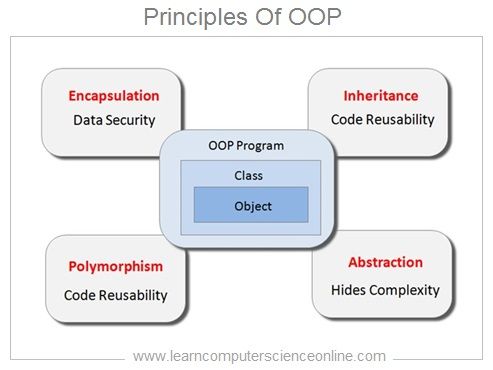Object-Oriented Programming (OOP) is a programming paradigm that helps in organizing code to create reusable and modular applications. It is based on the concept of objects, which contain data in the form of fields (attributes) and procedures (methods). Understanding the core concepts and principles of OOP is essential for any developer looking to excel in the tech industry.
Encapsulation
Encapsulation is one of the key principles of OOP. It refers to the bundling of data and methods that operate on the data into a single unit, known as a class. By encapsulating data, developers can control access to it and ensure that it is only modified through defined methods. This helps in reducing complexity and increasing code maintainability.
Inheritance
Inheritance allows classes to inherit attributes and methods from other classes. This promotes code reusability and helps in creating a hierarchy of classes. Subclasses can add their own attributes and methods, while still benefiting from the features of the parent class. Inheritance is a powerful tool in OOP that promotes code organization and reduces redundancy.
Polymorphism
Polymorphism is the ability of objects to take on multiple forms. In OOP, polymorphism allows objects of different classes to be treated as objects of a common superclass. This enables developers to write code that can work with objects of multiple types, without knowing their specific class. Polymorphism promotes flexibility and extensibility in OOP designs.
Abstraction
Abstraction is the process of hiding complex implementation details and exposing only the essential features of an object. By abstracting away unnecessary details, developers can focus on the high-level functionality of objects. This makes code more readable, maintainable, and reusable. Abstraction is a fundamental concept in OOP that promotes modular and scalable design.
Conclusion
Mastering Object-Oriented Programming requires a deep understanding of its core concepts and principles. By grasping encapsulation, inheritance, polymorphism, and abstraction, developers can create well-structured, reusable, and maintainable code. OOP is a fundamental programming paradigm in the tech industry, and mastering it can open up a world of opportunities for developers.
